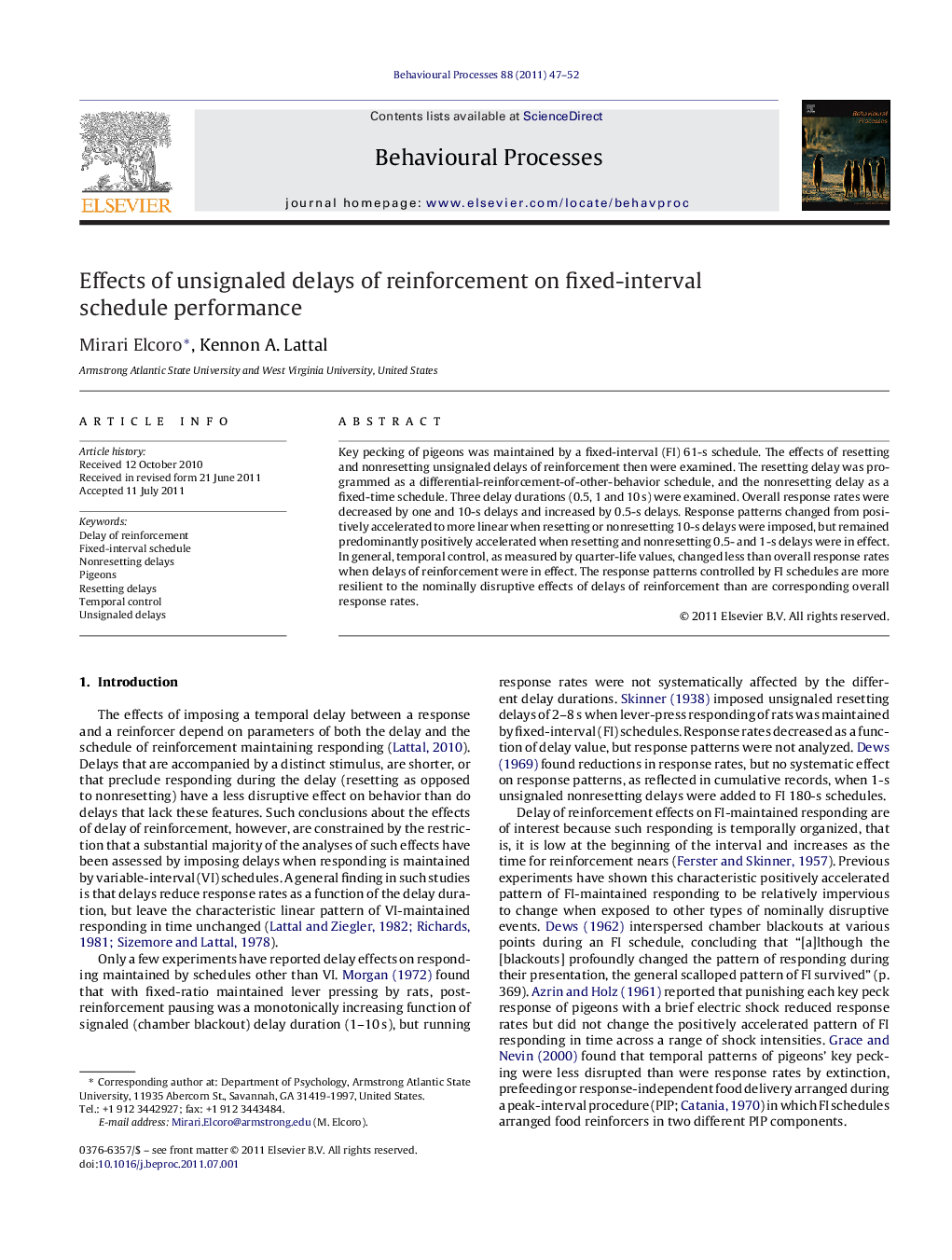| Article ID | Journal | Published Year | Pages | File Type |
|---|---|---|---|---|
| 2427114 | Behavioural Processes | 2011 | 6 Pages |
Key pecking of pigeons was maintained by a fixed-interval (FI) 61-s schedule. The effects of resetting and nonresetting unsignaled delays of reinforcement then were examined. The resetting delay was programmed as a differential-reinforcement-of-other-behavior schedule, and the nonresetting delay as a fixed-time schedule. Three delay durations (0.5, 1 and 10 s) were examined. Overall response rates were decreased by one and 10-s delays and increased by 0.5-s delays. Response patterns changed from positively accelerated to more linear when resetting or nonresetting 10-s delays were imposed, but remained predominantly positively accelerated when resetting and nonresetting 0.5- and 1-s delays were in effect. In general, temporal control, as measured by quarter-life values, changed less than overall response rates when delays of reinforcement were in effect. The response patterns controlled by FI schedules are more resilient to the nominally disruptive effects of delays of reinforcement than are corresponding overall response rates.
► One and 10-s delays decreased and 0.5-s delays increased overall response rates. ► Response patterns changed from positively accelerated to linear with 10-s delays. ► Response patterns remained positively accelerated with 0.5- and 1-s delays. ► QLs changed less than overall response rates with delays of reinforcement. ► 10-s resetting delays produced the most substantial changes in overall rates and patterns of responding.
